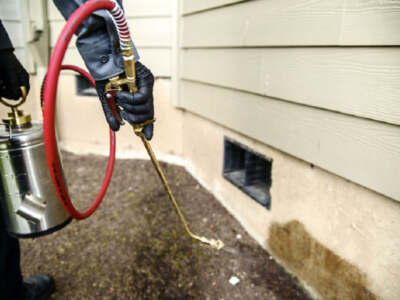Don’t you hate having to wake up in the morning just to open the door of your chicken coop? What is the point of living in the year 2022 if you still have to carry out this prehistoric chore?
Make it easy for yourself and get an automatic chicken coop door! You won’t have to wake up with your rooster or waste time serving as their porter.
Can’t wait to get yourself that door? Check out these six best tips for buyers and find the right automatic chicken coop door for you.
How Do Automatic Chicken Coop Doors Work?
Having an Automatic Chicken Door is great as it gives you the freedom to stay out of the house for longer periods of time. So, how exactly do they work?
These doors have a programmable control box that determines when the doors will open. There are two common opening modes used in these doors.
Light Sensor-Based
Light sensor-controlled automatic coop doors follow the natural chicken schedule. The door opens when the sky lightens up at dawn and closes when it gets dark outside in the evening.
These doors are great as they open just as your chickens wake up, but they do have some issues. One problem with the light sensor doors is that they fail to protect your chicken from predators.
Predators like foxes or coyotes are clever. They learn about patterns quickly. To make it worse, they are most active during dawn and dusk.
Such doors are also ineffective when you want to install a door inside the coop. If the light doesn’t reach the indoors, the opening of the door can get delayed. If no light reaches the inside of the coop, the doors won’t open and your chickens can get stuck in the coop.
Timer-Based
Timer-based automatic chicken coop doors open based on set times. You can control at what time the doors will open and close.
This is more flexible as you can set the times based on a particular need or situation. If you know that a predator shows up around seven in the morning, you can set the timer an hour late.
What Features to Look for?
There are many options of coop doors in the market, making it confusing for a buyer. If you know what you are looking for, it gets easier to pick one. So, here are the key features you should look for.
Ease of Use and Installation
While choosing a door, pick one that is easy to use. No matter how many cool functions a door has, there is no point in installing it if its function confuses you.
If you are building a new coop, installing a door won’t be hard. However, installing an automatic door on an existing coop might be difficult. You must choose a door that fits with the entrance hole.
Some people are handy enough to build their own automatic chicken coop door. If you are one of them, installation can be easy. Pick a door that is easy to install and has a clear manual you can follow.
Considering the Power Sources
An automatic chicken coop door will need a power source to run. There are mainly three types of sources that are used to power chicken coop doors. Some doors can run on all three, which makes them highly efficient and functional.
Electricity
Some types of doors run on electricity. If your chicken coop always needs a power outlet, this can be a big problem.
You shouldn’t use power extension cords as your chickens might pick on them and get electrocuted. If you do buy one, make sure that it can be opened manually during emergencies.
Solar Power
Solar-powered automatic chicken coop doors are great for farms. They will get plenty of sunlight during the day, which should keep them running. However, they can be expensive. And, they might function poorly during winter or cloudy weather.
If you want to get a door powered by solar energy, try to look for one that can run on more than one power source.
Battery
Most people use battery-powered automatic chicken coop doors because they are more convenient than the others. The door won’t need the sunny skies or a power source close by. You wouldn’t have to worry about outages either.
The only problem you will face is the frequency of having to change the batteries. These doors use AA batteries which will need to be changed every six to nine months.
How Durable Is the Door?
When you are choosing an automatic chicken coop door, try not to compromise with quality for the price. Don’t buy a door that is too cheap, as they will be of poor build quality and will break down fast.
Cheap doors are also made of flimsy material, which means any strong predator will be able to break in. Ensure it is made of sturdy material, like good quality stainless steel or heavy-duty aluminum. It also needs to be waterproof, so that weather doesn’t make it rusty.
You can check user reviews and ratings to know how durable the door is. By seeing what old buyers have to say about the door, you can make an informed decision. It can also help you compare prices and figure out how much a quality door costs.
Safety Issues
Safety needs to be a top priority when buying an automated chicken coop door. There have been too many tragic cases of beheaded chickens for not taking safety seriously.
This often happens when the door is released and drops due to gravity. Opt for a door that is raised and lowered using a motor mechanism. Even better if it comes with a sensor that can detect a block as you see with elevators.
Remember that the door doesn’t need to be too heavy, just sturdy enough to avoid breaking. If a door is too heavy, it can crush the chickens in case of accidents.
Final Thoughts
Hope these best tips for buyers can help you find the right automatic chicken coop door for you. Don’t buy a cheap door to save a few bucks as it can put your chickens at risk.
Whatever power source you use, make sure the door can be opened manually if it malfunctions. Try to choose one that runs on a combination of at least two sources.
An automatic chicken coop door should make raising chickens easier, but don’t go for cheap options. Pick a good quality, sturdy door that compliments your coop, and keeps your chickens safe.










Comments